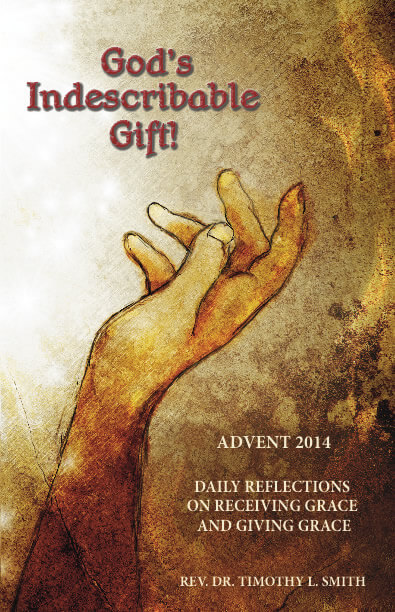
II Corinthians 9:6-7
Everyone likes it when the preacher gets to the point, and here Paul drives home his point emphatically: “The point is this…” Having been raised on a cotton farm where each spring we worked hard to sow lots of seed, Paul’s point makes good sense to me. If we wanted to reap a good harvest in the fall we didn’t figure out ways to sow fewer seeds. We knew that our harvest would be in proportion to our sowing. I know farmers, and they will scrimp and pinch pennies on lots of things, but never on their sowing. A miserly approach to sowing results in a very meager harvest.
Paul uses this agricultural principle to explain cheerful giving. Giving ourselves in time, money, and talents is more than giving our resources away: it is sowing seed that reaps an abundant harvest. When we hold back out of fear we lose. When we give, freely trusting God, we are blessed again and again.
Perhaps Paul writes here mindful of Master Jesus’ unambiguous words: “Give, and it shall be given to you. A good measure, pressed down, shaken together, running over, will be put into your lap; for the measure you give will be the measure you get back” (Luke 6:38). Perhaps Paul is also thinking of the sage words of Proverbs: “Whoever is kind to the poor lends to the LORD, and will be repaid in full” (Proverbs 19:17). Paul would surely have chanted in synagogue liturgy about God’s righteous people: “They have distributed freely, they have given to the poor; their righteousness endures for ever; their horn is exalted in honour” (Psalm 112:9). Even as a boy Paul would have learned at the Jewish Feast of Purim the obligation that however poor a man was, he must find someone poorer than himself to give a gift. A generously gracious God wants His people to live generously.
The point Paul makes is not a formula for getting rich. Rather, Paul is saying that generous giving is an investment, a spiritual investment that does something for us, for others, and for God. The harvest that we reap will not be simply material, but spiritual. We will reap a harvest of joy, inner peace, contentment, and the adventure of channeling grace to a needy world. If we sow a generous harvest, we will reap a generous harvest beyond all proportion.
But are there not times when we feel like we are being used, and our giving can seem for nothing? Times when giving feels as fruitless as throwing away precious seed? We wonder if it wouldn’t be better just to keep for ourselves and our own, our money, time, talent, and energies. Does anyone ever really gain by giving? Theologian Miroslav Volf, in Free of Charge, takes on such questions in what he calls the Triangle of Giving. We do best, he writes, to think of giving as a triangle, with God as the third party to our giving:
If gift giving involves only givers and recipients, givers run a risk of coming up short and, in light of ineradicable human selfishness mostly do come up short. Hardly any good deed then goes unpunished. If on the other hand, God is the third party in the relationship between giver and recipients, givers cannot lose. They always receive what they give, and more….The only way to ensure that we will not lose our very selves to others is if our love for the other passes first through God.
With God in the equation, Jesus has it right: “Give away your life; you’ll find life given back, but not merely given back – given back with bonus and blessing. Giving, not getting, is the way. Generosity begets generosity” (Luke 6:38, The Message).
REFLECTION
- Miroslav Volf talks about the “Triangle of Giving” that makes God the third party to any giving we do. How might knowing that God is the third party in your giving free and unburden you in giving?
- What do you think Jesus meant when he said: “Give and it shall be given to you”?



